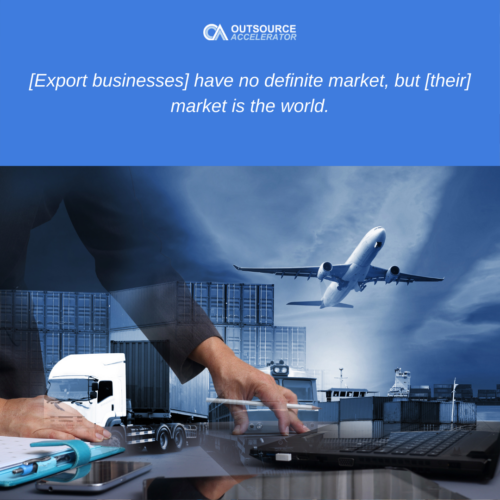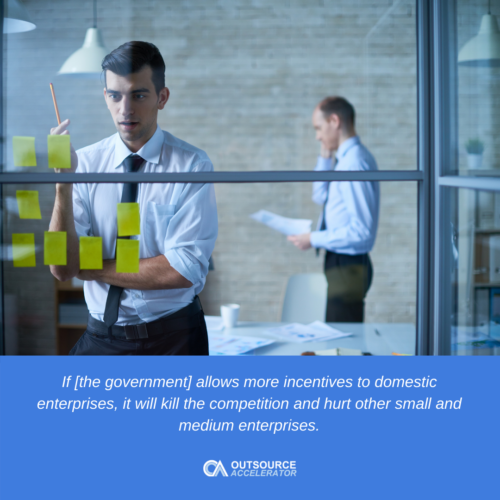A CREATE tax law deep dive with Atty Kristine and what it means for BPOs and business

Fortun, Narvasa & Salazar
Derek Gallimore talks with Atty. Kristine Ferrer, head of the tax department at Fortun, Narvasa & Salazar Law Firm. Located in Makati, Fortun, Narvasa & Salazar is one of the leading firms in the country that handle several cases relating to taxation and intellectual property.
After several deliberations, the Comprehensive Recovery and Tax Incentive for Enterprises (CREATE) Law finally took effect last April. in this episode, Derek and Atty. Kristine will give a crash course on the CREATE law, its offered tax packages to domestic and foreign enterprises, and how BPOs and companies can benefit from this regulation.
Atty. Kristine Ferrer is a certified public accountant (CPA) and head of the tax department of Fortun, Narvasa & Salazar Law Firm. Located in Makati, Fortun Narvasa & Salazar is one of the most prominent law firms in the country focusing on several practices including corporate practices, taxation, and intellectual property.
Atty. Kristine has been in the field of taxation for 10 years. In this episode, she will share the overview of the CREATE law and how it affects BPOs and enterprises.
An overview of the CREATE law
Known as the Republic Act 11534, the Comprehensive Recovery for Tax Incentives for Enterprises (CREATE) Law took effect on April 11 this year. This was once billed in Congress as the CITIRA bill.
The law provides stimulus measures to help the country recover from COVID-19 and amends the National Internal Revenue Code.
The CREATE law introduced the following measures:
- Lowered regular corporate tax from 30% to 25%; up to 20% for domestic companies
- Title 13, a provision that governs tax incentives to registered enterprises
- Better job creation, aimed at 1.4 million new jobs in the next 10 years
The CREATE law aims to attract investments, develop a globally competitive tax incentive regime, and provide a more equitable tax system in the Philippines.
Contents of the CREATE law
Atty. Kristine agreed that the CREATE law provides a generous tax arrangement for foreign and domestic businesses in the country. She expounded its contents and explained each of them.
Lowered regular corporate tax
Both foreign and domestic enterprises in the country can enjoy a lowered corporate tax of around 20-25% from its usual 30%.
Purely domestic companies can have up to 20% corporate tax. This is provided that they have a net income not more than Php 5 million and assets not more than Php 100 million. The value of their real property, whether office building or land, will be deducted from their total assets if applicable.
Meanwhile, businesses classified as domestic and resident foreign are taxed at 25%. These are foreign enterprises registered with the Securities and Exchange Commission and are listed in the Philippine stock market.
Non-resident foreign companies are also rated at 25%.
Corporate income tax
Atty. Kristine mentioned that aside from corporate tax, the minimum corporate income tax will be reduced from 2% to 1%. Both domestic and resident foreign companies are required to pay their minimum income tax during the fourth year of operations from their BIR registration date.
Here, companies can pay either the 20-25% corporate or the minimum income tax, whichever is higher.
Tax relief under Title 13
Title 13 provides tax exemptions to registered businesses who will successfully apply before the Fiscal Incentives Review Board or governing agencies such as PEZA, Board of Investments, or TIEZA. This is provided that their projects cost Php 1 billion or less.
For this, BIR classifies two types of enterprises – domestic and export. Business process outsourcing (BPO) companies are classified as export enterprises.
Companies classified as export enterprises enjoy the following benefits:
- Income tax holiday (ITH) from four to seven years, plus
- 10 years of 5% special corporate income tax (SCIT) or enhanced deduction
- Higher incentives for areas farther from the National Capital Region (NCR)
After their ITH, export companies can choose whether they will get the 5% SCIT or the enhanced deductions.
For domestic enterprises, meanwhile, companies can have the following:
- ITH from four to seven years, plus
- Five years enhanced deductions
After ITH, they can get this deduction in addition to other deductions provided by the tax code.
Why do export industries have better tax incentives?
As Atty Kristine recognizes that export companies have better tax incentives, she as well considers this as a fair deal. According to her, the government reasoned out that “allowing more domestic enterprises will kill [the] competition”. This, in turn, can hurt other MSMEs in the country.
Changes on significant tax aspects
Atty Kristine assured that the law does not affect other aspects of the tax code, including the following.
Personal income tax
According to her, income tax for individuals will remain unchanged by the CREATE law.
Currently, Filipinos and resident foreigners have around 20-30% income tax depending on their income bracket. Income tax can go up to 35% for individuals earning more than Php 8 million while those earning Php 250,000 and below are exempted from paying.
Non-resident foreigners are “taxed like a citizen” if they stay in the country for more than 180 days in any calendar year. Those who are staying temporarily, meanwhile, are taxed around 25% of their income.
Real property
There won’t be any changes in taxation as well for real properties under certain conditions.
Individuals enjoy a 6% tax gain on real properties such as land or building. When selling a property, their tax will be based on either 6% of the zonal value or the market value in itself, whichever is higher.
When asked why there’s no fixed amount for properties, Atty. Kristine said that deductions will only be allowed when it is a part of the business asset.
According to her, companies are allowed to deduct the cost from their tax incentives for as much as 15% when selling shares of stock(capital gains tax) while 6% when selling a non-capital asset.
The CREATE law and ease of doing business in the Philippines
Atty. Kristine agrees that the CREATE law contributes to simplifying the ease of doing business (EODB) in the country.
Per her, CREATE law reduces bureaucracy. This is since companies registered under Title 13 are required to register to BIR’s electronic filing and payment system (eFPS). It means that they should file their taxes online with their invoices and receipts computer-generated.
This move is considered “quite successful” for Atty. Kristine. In fact, most companies now file through this electronic system while individuals can file through eBIR forms downloaded through the Internal Revenue website.
Tax filing compared to other countries
Compared to other countries, the Philippines still has a long way to fare in terms of filing taxes. Currently, companies still file a lot of requirements starting from VAT returns, quarterly income tax, and annual income tax returns.
Per Atty. Kristine, the BIR does this for companies and individuals “to be forced to declare their transactions”. However, as compared to years ago, BIR “has been more efficient” with its systems. This is evident with more people now paying their taxes and the agency exceeding its collection target.
Atty Kristine also said the BIR has a “wide avenue…to detect transactions”, whether online or in-person.
The impact of COVID on the Philippine economy
She also expects a decrease in tax collection in the following years post-COVID. Atty. Kristine projects that corporations “are starting to feel the [pandemic’s] effect just now. Though, some companies must have already felt this last year.
On the bright side, she still hopes that the economy “will be able to cope up” rapidly. With this, Atty. Kristine still looks forward to the news of BIR exceeding its collection target this year.
To those interested to get in touch with Atty, Kristine and Fortun, Narvasa & Salazar Law Firm, check out their website: www.fnslaw.com.ph or their Facebook page: Fortun Narvasa & Salazar for the latest updates.









 Independent
Independent




